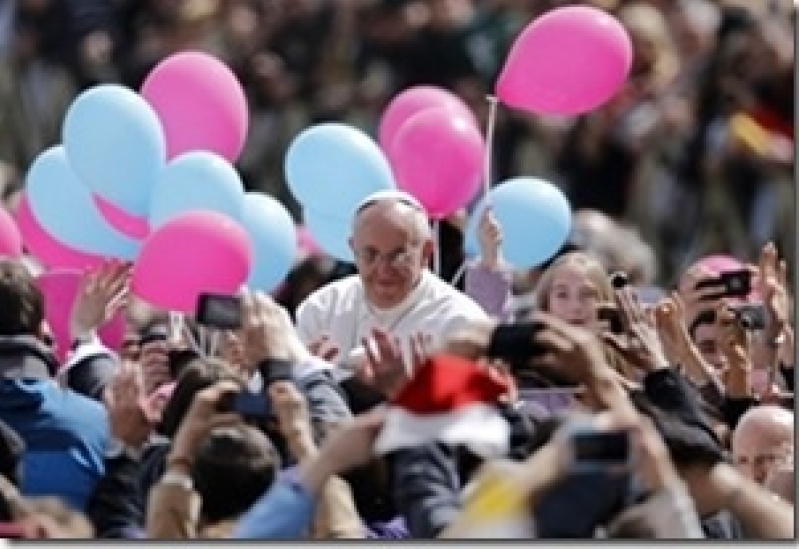
On Easter Sunday 2013, Pope Francis delivered the first “Urbi et Orbi” message-- Latin for to the city and the world-- calling for peace in various conflicts around the world.
The pope mentioned the Middle East, and particularly between Israelis and Palestinians; in Africa: Mali, Nigeria, Democratic Republic of Congo, the Central African Republic. Also in the Korean peninsula that disagreements be overcome and a renewed spirit of reconciliation grow.
"We ask the risen Jesus, who turns death into life, to change hatred into love, vengeance into forgiveness, war into peace. Yes, Christ is our peace, and through him we implore peace for all the world." the pope said.
He also pointed out the true meaning of resurrection, "What does it mean that Jesus is risen? It means that the love of God is stronger than evil and death itself; it means that the love of God can transform our lives and let those desert places in our hearts bloom. The love God can do this!"
An estimated 250,000 people jammed St. Peter’s Square and nearby streets to celebrate the day on which Christians honor the resurrection of Jesus Christ.
Francis delivered his Easter address from the central balcony above the main entrance on the baroque facade of St. Peter’s Basilica, the same spot where he was introduced as pope after his election on March 13.






